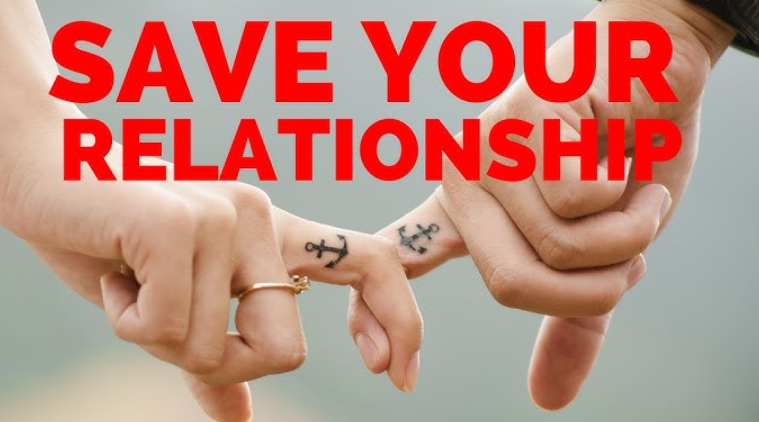More than half of all adults live in a relationship, and many more desire one. While most people live in a monogamous relationship with one or more partners, the definition of partnership is broad. Partnerships can be very individual and range from monogamous to open or polyamorous. But no matter what kind of constellation we live in, relationships influence our mental and physical health. It makes a difference whether we live in happy, satisfied, and fulfilling relationships or not. One factor that can be related to this is the perceived fidelity in the relationship.
When a partner is deemed to be infidelity depends on the relationship model, the partner’s own attitude, and their own needs and desires. For example, a distinction can be made between sexual and emotional infidelity. Studies show that over 80% of people desire fidelity in their relationships, but at the same time, approximately 40% of respondents report having been unfaithful in relationships. Infidelity often leads to a variety of unpleasant emotions, difficulties in the relationship, or even breakups. But it can also be overcome. Here you can learn about the effects of infidelity and how to deal with it once it has happened.
What does the betrayal do to me as the victim?
Whether you’ve been confessed to an affair, cheating, or infidelity, or you discovered it yourself, the fact of being cheated on usually triggers a state of shock . Your entire world suddenly changes, and it’s hard to realize and process it quickly. Trembling, rapid heartbeat , or sweating may occur; numbness or paralysis are also not uncommon. This state usually lasts only briefly and is followed by racing thoughts, numerous questions , and strong, unpleasant feelings.
When people find out they have been cheated on, their emotional world is often filled with many different, intense emotions, which can be experienced as very stressful and overwhelming. Anger, disappointment, despair, sadness, jealousy and shame can arise. Many people also feel personally questioned, question their own attractiveness or blame themselves. This can have a negative impact on self-esteem . Infidelity can not only have psychological effects, but also affect behavior and physical health. To cope with the difficult situation, some people try to avoid the unpleasant feelings, distract themselves or seek revenge. This can manifest itself in substance use, extreme sports or risky behaviors such as driving fast or having unprotected sex.
How exactly people feel after a breach of trust is highly individual and depends on various factors, such as the length and depth of the relationship, experiences from past relationships, their own self-image, or how they planned their future together. Another challenging aspect is that the image and opinion that the betrayed person had of their partner (possibly for a long time) suddenly changes and now needs to be corrected. As painful as these reactions are, it’s important to understand that they are part of a normal process for understanding and coping with the situation.
What does the fraud do to me as a fraudster?
Dissatisfaction in a relationship isn’t always the sole reason someone becomes unfaithful. Certainly, one’s own satisfaction plays a role, but so does the amount already invested in the relationship (everything one could lose through a breakup: friends, property, children, etc.), the length of the relationship, the future orientation, one’s own values or religious views, and the possible “alternative” (i.e., whether time with another person is considered better or more satisfying). People rarely cheat on their partners to hurt them; rather, they usually do so because they initially only see short-term consequences (e.g., self-affirmation, fun, variety, etc.) and overlook the long-term consequences (e.g., conflict, hurt, separation, etc.).
But the person who cheated also has to reckon with various consequences. For most people, their own infidelity has a strong impact on their emotions. Our self-image can change when we realize we have hurt our partner. People usually assume we are good and doing the right thing. When we realize we have done something wrong or hurtful, feelings of remorse, guilt, shame, and regret can arise. Fears about the consequences for the relationship and anxiety about the future can also arise. Furthermore, it is not unlikely that the relationship will change and unpleasant emotions will continue to increase due to more conflicts or that you are more frequently confronted with accusations, blame, or jealousy from your partner.
How do I deal with this?
Regardless of whether you have been cheated on or have cheated on someone, dealing with infidelity takes time. Many people try to avoid feeling the unpleasant emotions, suppressing them, or distracting themselves. Even though it’s painful, it’s very important to allow all the emotions associated with infidelity to surface and give yourself time to realize, understand, and cope with the situation. Unprocessed feelings can have long-term negative consequences for mental and physical health.
For the person who has been betrayed, it’s helpful to first take care of themselves: Seek support from friends or family; it can be very helpful to talk to other people about what happened and how you’re feeling. Don’t suppress or avoid your feelings, but try to acknowledge them. Also, take care of yourself by continuing to do things that make you feel good (e.g., activities, hobbies, sports) and try to eat, drink, and sleep enough.
It’s just as important for the unfaithful person to allow their own feelings to emerge in order to process them. Talking to trusted friends or family can also help with this. It’s important to take responsibility for your own behavior. At the same time, try to understand the reasons for your infidelity and, instead of beating yourself up about it, practice self-compassion, forgiveness, and acceptance. A willingness to learn from mistakes can also be helpful.
Both partners should also be aware of what exactly the infidelity means to them and how they want to deal with it. Opinions may differ, of course, which can be very painful. Perhaps you aren’t even sure how to proceed at first. In any case, it’s important that you try to talk honestly with each other. This requires a lot of strength after a hurt experience, but it will help you clarify the situation, process any feelings that arise, and, ideally, find a mutual solution.
Do we break up or can we get this back on track?
The decision whether you should break up or continue the relationship is primarily an individual one. Listen to each other and try to figure out, individually and together, why the situation arose and what you can do. Perhaps only one person wants to continue the relationship and the other doesn’t, or the hurt is so great that you want it but aren’t sure if it can work.
It’s impossible to predict what the “better” decision for a relationship will be; ultimately, you can only try it out and listen to how you feel about it. If you decide not to separate, a difficult phase of recovery will definitely follow. Feelings will be hurt, and the relationship will initially be shaken. Both partners will initially find themselves in a state of emotional chaos that needs to be sorted out. This is often accompanied by strong conflicts, blame games, and mistrust. Afterward, each partner usually withdraws a bit, needs time for themselves to reflect, and figure out what they want. Only then can the reconstruction begin; you will grow closer again and rebuild your trust in one another. Perhaps new roles and structures will also develop. It’s not uncommon for a new infatuation to emerge in this final phase of forgiveness and reconstruction, as happens at the beginning of almost every new relationship. And often, after such an event has been overcome, a relationship is perceived as better and more satisfying than before.
When does psychological support make sense?
There’s no right or wrong way to deal with infidelity in relationships. Intense, difficult feelings and thoughts are a normal response to coping with what has happened. Yet they can be overwhelming and overwhelming, so it can be helpful to seek professional support. Psychological support can be helpful in a variety of ways.
What therapy options are there for relationship problems?
Individual therapy
If you’re stuck on your own or find it very difficult to deal with unpleasant feelings and thoughts, even after a long time, psychotherapy can be helpful. For example, if you notice that your self-esteem has changed significantly, you’re suffering from feelings of guilt, or are developing symptoms of depression or anxiety that are limiting your daily life, therapy can be helpful.
couples therapy
Couples therapy is available to people experiencing relationship problems, such as conflicts or affairs. It can be helpful right away; you don’t have to try to deal with the situation on your own first. Typically, the goal is to understand, process, and overcome these difficulties with the help of a couples therapist. This usually assumes that you want to work on your relationship. Therefore, the overarching goal isn’t necessarily a separation. However, couples therapy can also provide support during a separation if that’s the best path for you. Even if you’re unsure whether and how you can handle the crisis alone, couples therapy is beneficial.
Another option is psychosocial counseling centers such as profamilia or Caritas, which offer counseling for people with relationship problems.

is an American author, blogger, and cybersecurity specialist based in Florida. He developed an interest in writing during his school years, which later led him to create content aimed at raising awareness about various forms of online scams, particularly in the world of online dating.
On his platform, Scam Service Report, Hall shares analytical articles and practical advice to help users recognize and avoid traps set by scammers on dating websites. He describes common scam scenarios in detail—such as quick declarations of love, urgent requests for money transfers, refusal to engage in video chats, and attempts to move conversations off the dating platform.



